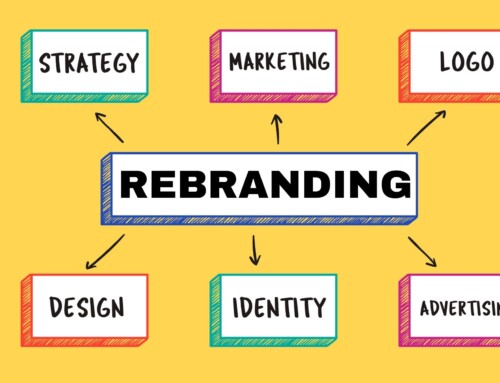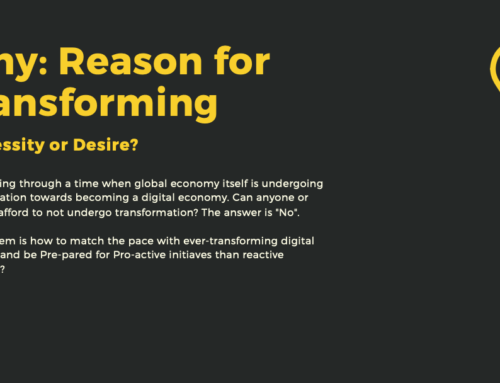 One of the most vital, yet thought poppycock by many, aspect of business is “Planning”. The world is replete with examples wherein the value of planning in business is realized posthumously. The ubiquity of the importance of business planning gets diminished especially among the “Startup” or “Small” businesses, at least in my part of world. This has more to do with the experience, mindset and attitude of the business owner (s) and the overall maturity of the regional economy towards business startup. Another reason for this misinterpretation is the limited understanding of the word planning, often confusing with a template based business plan or market plan or anything like that, without taking a holistic perspective. However, I guess I should touch that in some other blog post and keep this focused on the importance of planning.
One of the most vital, yet thought poppycock by many, aspect of business is “Planning”. The world is replete with examples wherein the value of planning in business is realized posthumously. The ubiquity of the importance of business planning gets diminished especially among the “Startup” or “Small” businesses, at least in my part of world. This has more to do with the experience, mindset and attitude of the business owner (s) and the overall maturity of the regional economy towards business startup. Another reason for this misinterpretation is the limited understanding of the word planning, often confusing with a template based business plan or market plan or anything like that, without taking a holistic perspective. However, I guess I should touch that in some other blog post and keep this focused on the importance of planning.
Don’t confuse planning with a plan, one is activity and another is an outcome. This isn’t a rocket science and could be easily understood through following lines, “Whoever is first in the field and awaits the coming of the enemy, will be fresh for the fight; whoever is second in the field and has to hasten to battle will arrive exhausted.” ~ Sun Tzu
As a child, our parents prepared our grooming plan, the school and college prepared our study plan and so on. You win a game not just by participating but by having a game plan. Likewise, a business needs to be planned on various parameters to reach a glory point. This is more in line with Newton’s third law of equal and opposite action-reaction. You need to go down the Rabbit hole and plan various entry exit points to ultimately rebound and reach the acme of success. Just putting a website or remaining in love with your idea without planning is like parking a vehicle and hoping that it will win the rally championship on its own.
 This reminded me of a fable about the Ant and the Grasshopper (Read-Here) and its new age version (Read-Here).
This reminded me of a fable about the Ant and the Grasshopper (Read-Here) and its new age version (Read-Here).
One of the fundamental principle behind successful business is “Planning” and “If you fail to plan, you plan to fail”. Planning is akin to your vacation planning wherein you plan your destinations, interim milestones, keep a road map, and make various other arrangements in advance for any contingent situation. Likewise, a business needs to be planned for goals and the course of action that will take it there. The course of action not necessarily be only Marketing or Sales or Finance, but could be management, policies and more importantly an outside mentor/adviser as a tour guide to prevent you from getting lost. The market is galore with examples of businesses losing their focus after getting launched and ultimately dying of confusion.
Another school of thought on planning says that we do have done proper planning but then also we failed, much like Grasshopper example, why? This aspect of planning and failure follows the aplomb behavior. It’s good to have an internal capability to do planning, but it’s better to get a feedback of your planning by a neutral agency or person. This again is like going down the Rabbit hole to explore various entry and exit points and do a sound planning.
A company should always have plans at strategic, operational and other levels and must revisit the plan in a while to keep it in sync with the changing market dynamics. It requires a fool to presume that what you planned a year earlier will actually be applicable in a same way down the line. If change is the only constant, then it requires adaptability and awareness to accept that change and that awareness and adaptability comes from planning.
Having a vision is one thing, successfully executing it another and what lies in between is planning. Ideas don’t fail your business but poor or inadequate planning does. So, just sit down and ask yourself, have you really done any planning for your business or is it just parked with many others? It’s time you go down the Rabbit hole and search your entry-exit points and while doing that you’ll end up planning an entire course. And when you’re done with digging the Rabbit hole you’ll realize that:
- You’ll be never too far from your vision and goals like a Rabbit, by default, never gets far from its burrow due to multiple exit-entry point.
- You’ll be able to get a holistic picture of your business environment by going in various direction and while doing that you’ll come across various passing opportunities
- It will make you fast and agile to change as even if one door gets closed you’ll have many other open.








[…] that they become adamant to change, without actually taking a time to go down the Rabbit hole (Read-Here) and explore the strengths and weaknesses, as an individual as well as […]
[…] does becomes a leader. Because he spends time defining the problem, go deep down the rabbit hole (Read Here) and comes out with a plan to solve each of them. The moment you rush through the problem, not to […]